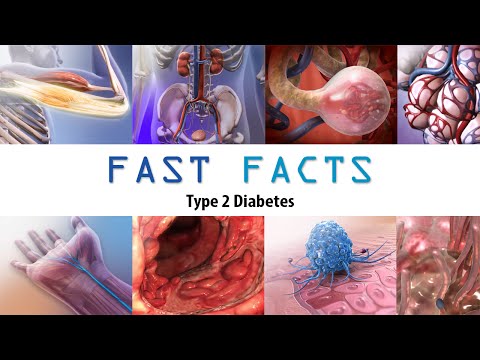Abortion and reproductive health are critical topics that impact individuals and societies worldwide. Our guide provides an in-depth analysis of current trends and valuable insights on services access, care quality, technological advancements, and support resources. We’ll cover critical aspects such as reproductive health awareness, abortion care access, contraceptive advances, telemedicine reproductive services, inclusive sex education, post-abortion mental support, reproductive rights advocacy, fertility tracking innovations, abortion stigma reduction, and reproductive equity initiatives.
Reproductive Health Awareness: Understanding the Importance
Raising reproductive health awareness is crucial for informed decision-making and access to essential services. Educating individuals about their reproductive rights and the available healthcare options can empower them to make choices that align with their needs and values. Through awareness campaigns, communities can tackle misconceptions, promote safe practices, and encourage discussions around abortion and reprodctive health. The role of media in spreading awareness and addressing misconceptions is also vital in shaping societal attitudes toward reproductive health.
Abortion Care Access: Overcoming Barriers
Access to abortion care is vital in ensuring the well-being of individuals seeking these services. Legal restrictions, geographical limitations, socioeconomic factors, and lack of information can create barriers to abortion care access. By addressing these challenges, communities can support the rights of individuals to make decisions about their reproductive-health.
Efforts to increase abortion care access include advocating for policy changes, supporting telemedicine services, and providing financial assistance to those in need. By understanding the unique challenges different populations face, organizations can develop targeted interventions that address specific barriers to care.
Contraceptive Advancements: Expanding Options for Family Planning
Innovative contraceptive methods are revolutionizing family planning by offering a more comprehensive range of choices to suit individual needs. From long-acting reversible contraceptives (LARCs) to new hormonal options and male contraceptives, advancements in this field contribute to more accessible and effective family planning solutions. These innovations help reduce unintended pregnancies and contribute to healthier reproductive outcomes.
Research and development efforts are continuously working towards improving existing contraceptive methods and creating new options. By staying informed about these advancements, individuals can make more informed choices about their family planning and reproductve health.
Telemedicine Reproductive Services: Leveraging Technology for Accessible Care
Telemedicine can potentially transform abortion and reproductve health care by making services more accessible; This is particularly beneficial for individuals residing in rural or isolated regions. Online consultations, prescription management, and follow-up care through telemedicine can help overcome geographical barriers, reduce wait times, and ensure continuity of care. As technology advances, telemedicine will improve abortion and reproductive care access.
Integrating telemedicine services into existing healthcare systems can optimize resource allocation and efficiency. By investing in the infrastructure necessary for telemedicine, governments and healthcare providers can expand access to abortion and reproductive health services for their populations.

Inclusive Sex Education: Empowering through Knowledge
Comprehensive, inclusive sex education is a cornerstone of reproductive health awareness. Sex education allows individuals to make educated reproductive health decisions by giving accurate knowledge on contraception, consent, sexually transmitted infections (STIs), and abortion. Incorporating diverse perspectives and experiences in these programs can help foster a more inclusive understanding of reproductive health.
In addition to schools, community-based organizations and healthcare providers can be crucial in delivering sex education programs. By collaborating with experts and stakeholders, these organizations can develop comprehensive curricula catering to their communities’ unique needs.
Post-abortion Mental Support: Addressing Emotional Well-being
The emotional well-being of individuals who undergo an abortion is essential to reproductive. By providing post-abortion mental support and counselling, communities can help address feelings of guilt, shame, or sadness that may arise after the procedure. Mental health support resources can also reduce the stigma surrounding abortion and encourage open conversations about reproductive health.
Offering tailored counselling services and support groups can create a safe space for individuals to share their experiences, seek guidance, and connect with others who have undergone similar experiences. By prioritizing mental health in the context of abortion and reproductive health, communities can foster a more compassionate and supportive environment.
Reproductive Rights Advocacy: Championing Access and Autonomy
Advocating for reproductive rights is vital to securing access to abortion and reproductive health care. By promoting the rights of individuals to make decisions about their reproductive health, advocates work to create a more equitable and inclusive society. Collaborative efforts between governments, NGOs, and activists can help advance reproductive rights and dismantle barriers to care.
Reproductive rights advocacy initiatives can include policy reform, awareness campaigns, and community mobilization. By engaging diverse stakeholders and fostering partnerships, these initiatives can create lasting change and contribute to the ongoing dialogue surrounding abortion and reproductive health.
Fertility Tracking Innovations: Harnessing Data for Informed Decisions
Fertility tracking technologies, such as mobile apps and wearable devices, empower individuals to understand their reproductive health better. These innovations provide insights into menstrual cycles, ovulation patterns, and fertility windows, helping users make more informed decisions about family planning and reproductive health care. As these technologies evolve, they will play a significant role in personalizing and enhancing reproductive health management.
Individuals can make informed decisions about their reproductive health and align them with their goals and preferences using data-driven insights. Healthcare providers can also utilize fertility tracking technologies to inform patient care and optimize treatment plans.
Abortion Stigma Reduction: Fostering Compassionate Conversations
Reducing the stigma surrounding abortion ensures access to care and promotes open dialogue around reproductive health. By challenging misconceptions and fostering compassionate conversations, communities can create a more supportive environment for individuals seeking abortion care. Public awareness campaigns, educational programs, and mental health support are important initiatives that can help reduce the stigma surrounding reproductive health. These initiatives can also empower individuals to make informed decisions about their reproductive health without fearing being judged.
Promoting empathy, understanding, and respect in discussions about abortion can help break down the barriers that often prevent open communication. By modelling inclusive and non-judgmental conversations, individuals can contribute to a more accepting and supportive culture surrounding abortion and reproductive health.
Reproductive Health Equity Initiatives: Bridging the Gap
Addressing disparities in abortion and reproductive health care access is vital to promoting health equity. Socioeconomic factors, race, and geographic location can all contribute to inequitable access to reproductive health services. By identifying and addressing these barriers, governments and non-governmental organizations can work towards creating a more equitable and inclusive healthcare landscape.
- Community-based programs: Local initiatives focusing on providing education, resources, and support can help bridge the reproductive health care access gap. Community-based programs can create lasting change by targeting underserved populations and tailoring services to their needs.
- Policy reform: Advocating for policy changes that expand access to abortion and reproductive health services can significantly impact health equity. This includes supporting removing restrictive abortion laws, increasing funding for family planning services, and ensuring access to comprehensive sex education.
- Telemedicine expansion: As mentioned earlier, telemedicine can increase access to abortion and reproductive health care. By supporting the development of telemedicine services, organizations can help overcome geographic barriers and ensure that care is available to those who need it most.
- Training and education for healthcare providers: Ensuring that healthcare providers are equipped with the knowledge and skills necessary to deliver comprehensive reproductive health care is essential in organizations that can help create a more inclusive and competent healthcare workforce by investing in training and education.
- Public-private partnerships: Collaborations between public and private sectors can significantly contribute to addressing disparities in reproductive health care access. By leveraging both sectors’ resources, expertise, and reach, these partnerships can develop innovative solutions to complex challenges and improve the overall quality of care.
Conclusion
The landscape of abortion and reproductive health is continually evolving, with advancements in technology, policy reform, and social attitudes shaping the future of care. By staying informed about the latest trends, developments, and debates, individuals can contribute to a more comprehensive understanding of these critical issues. We can strive towards a healthier and more equitable future by improving access to abortion and reproductive health care, education, and support.











Pingback: Do You Know How to Spot an Online Dating Scam - Billboard Health